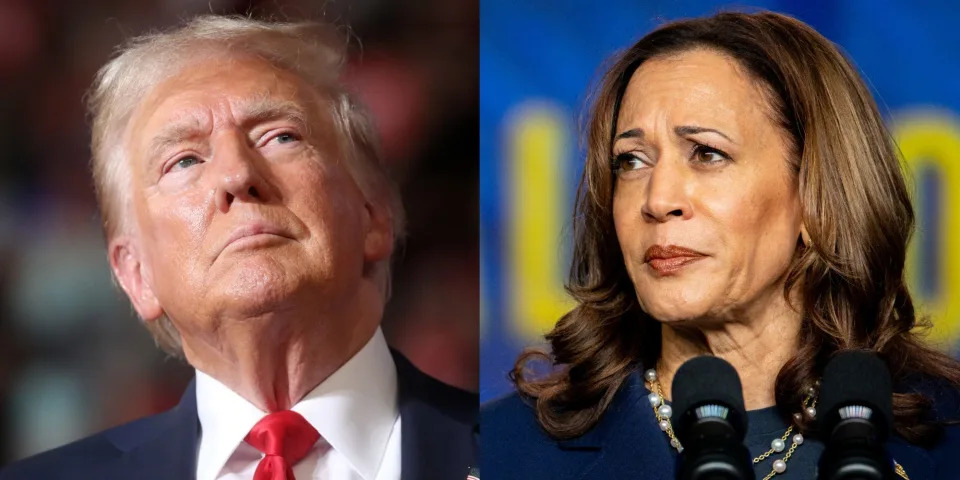News
How 4 possible presidential election results could impact stocks

Since President Joe Biden dropped out of the presidential race in July, outlooks on what could happen in November have dramatically readjusted.
The sudden candidacy of Kamala Harris has brought back confidence in a possible Democratic victory, which was starting to fade under Biden. With less than 100 days to go to the election, she is now polling higher against her rival , Donald Trump.
Harris' rise has prompted UBS to update its outlook on what could happen to stocks, based on the election's outcome. The bank offered a similar analysis in March when Biden was still running.
(1) Harris wins with split Congress
UBS projects a 40% chance that Harris will take over the Oval Office, while Congress is split.
The scenario would have a minimal impact on equities, boosting companies focused on renewables and energy efficiency. The bank expects a relief rally to lift Inflation Reduction Act benefactors, while a regulatory overhang could cause fossil fuel companies to trade lower.
UBS said strict regulation could also limit the financial sector, as Harris will keep in place an "anti-big financial services ideology." Since the Silicon Valley Bank collapsed in March last year, Biden has called for tighter oversight .
At the same time, Congress would limit Harris from pushing major legislation, such as industrials and healthcare.
(2) Trump wins in red sweep
If Harris doesn't win, UBS sees 35% odds that Republicans win both Congress and the White House. When Biden was still running, this was the most probable outcome, the bank previously forecast.
In this case, Trump would face fewer limits in implementing touted policies, such as his pledge to raise tariffs and extend the 2017 corporate tax cuts.
UBS expects regulation to loosen in this scenario, while merger and acquisition activity would likely rise. These factors would help support fossil fuel investment and would be the best-case scenario for financials.
That makes a red sweep outcome slightly positive for equities, although the bank expects Trump's other proposals to offset initial market excitement.
For instance, many economists have voiced concern about higher tariffs, considering that elevated duties can spur inflation. Trump has repeatedly dismissed these warnings, instead calling for a universal tariff on all US trade and a 60% tax rate on Chinese exports.
In this case, UBS expects interest rates and the dollar to rise. Higher tariffs could also impact the technology sector, especially hardware and semiconductor firms.
The bank noted possible negative effects on healthcare from Trump's proposals, such as plans for an international drug pricing index.
(3) Harris wins in blue sweep
UBS sees a 15% possibility that Democrats secure both branches of government. If that happens, it'll be the worst outcome for stocks, the note said.
This scenario would be slightly negative for the market, as investors can expect the 2017 tax cuts to expire, while regulation would tighten. Financials and fossil fuel companies would be hit hardest, driving up costs in both industries.
Some efforts could be made to expand the IRA's drug price negotiating power, though its questionable how willing Democrats from Biopharma states will be in implementing this.
Meanwhile, the estate tax could rise, alongside limitations to state and local tax deductions.
Altogether, lower growth would prompt interest rates are to fall, as disinflation continues.
(4) Trump wins with divided Congress
The least likely outcome that UBS expects is for Trump to return to the White House, without the support of a Republican Congress. There is a 10% chance this happens.
Under this scenario, the stock market impact will be mixed. As with a red sweep, tariffs will still bring about inflationary pressures and a stronger dollar, modestly pushing up interest rates.
The bank said investment spending could fall back for industrials as uncertainty grows around green energy initiatives.
Meanwhile, UBS anticipates regulatory overhangs to ease somewhat over the fossil fuel and financial sectors, with the latter benefiting from new regulatory head appointments at the Federal Reserve, FDIC, and Securities and Exchange Commission.
Read the original article on Business Insider

